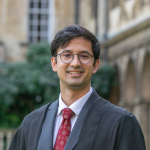Course Information
- 2025-26
- 5-Year B.A., LL.B. (Hons.)
- II
- Nov 2025
- Core Course
Constitutional Law II is the second of the two courses on constitutional law that [B.A., LL.B. (Hons.) and LL.B. (Hons.)] cohort must complete. In Constitutional Law I, we focussed on the separation of powers – the horizontal division of institutional power between the Executive, the Legislature, the Judiciary and the Fourth Branch institutions, and the vertical division of institutional power through the devices of Federalism and Decentralisation. Constitutional Law II continues the discussion on the theory, doctrine, and the practice of constitutional law in India, with a focus on Parts II (Citizenship), III (Fundamental Rights), IV (Directive Principles of State Policy) and IV-A (Fundamental Duties) of the Constitution.
The course examines how the Constitution’s founding moments reflect the importance of the Constitution as a political and legal document, which sought to balance the incorporation of fundamental rights and the challenges of governance in a deeply diverse, plural and newly independent post-colonial country. It explores the subsequent political and social imperatives that unfolded over the past 75 years and the manner in which constitutional amendments and interpretation reflected these shifts.
The course first provides an introduction to the idea of entrenched rights in a modern Constitution and the reasons for and against entrenchment. It explores who are / should be the rights-holders and duty-bearers, and whether such rights are absolute or may be amended or overridden or waived. We then study specific fundamental rights guaranteed in the Constitution. We begin with a discussion on the right to equality, and ask whether it implies a right to reservations or special provisions, and how the ideas of equality and justice intersect in the Constitution. We then focus on various freedoms, in particular the freedom of speech and expression, the freedom of association and the freedom to carry on any occupation, trade or business, and the manner in which these have been amended and interpreted over the years. We analyse the relationship of these freedoms under Art. 19 with personal liberty under Art. 21 and freedom of religion under Arts. 25 and 26. We also closely review the right against exploitation, the rights of minorities as well as rights to language, script and culture.
The course provides a critical look at the manner in which these fundamental rights can be enforced, particularly in the context of Part IV of the Constitution. The focus will be on the status and importance of Fundamental Rights, Directive Principles and Fundamental Duties. The goal is to identify and articulate the basic values of the Indian Constitution and analyse the attempts made to actualise them for justice and governance.
The course concludes with a focus on the importance of Citizenship for the enjoyment of, or the right to have, rights. Constitutional amendments, their limits and scope form the final section of the course.





